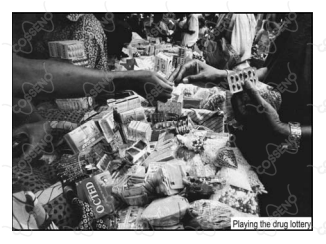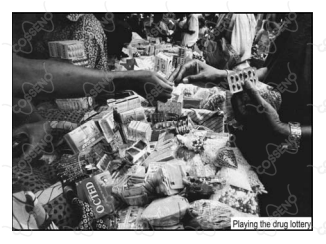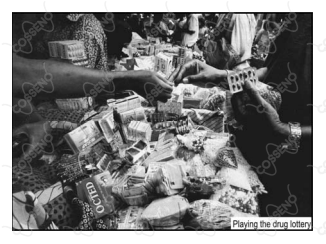USP 2011 Inglês - Questões
Abrir Opções Avançadas
Although the human brain has an impressive amount of storage space for memories, it does not keep each one indefinitely. We tend to forget memories that are similar to one another - remembering instead more novel events or information. In fact, forgetting is important because it makes it easier to recall new memories.
Although forgetting can be annoying, it sometimes helps us learn. In 2007 researchers at Columbia University showed that genetically modified mice that cannot generate new neurons in the hippocampus - a brain area involved in storing memories - do better on memory tasks than mice that create new neurons as usual. Learning new information does not require new neurons; it simply requires that existing neurons connect in new ways.
Yet storing a memory does require the ability to sprout new neurons. Thus, the genetically modified mice could still learn new information, like the most recent location of food in the maze, but had no old memories of where food was hidden interfering with their most recent one. Forgetting, then, helps us remember.
(Scientific American, July 13, 2010. Adaptado.)
Baseando-se no texto, responda:
A) Qual é a importância do esquecimento para o cérebro humano?
B) No experimento mencionado no texto, por que os ratos geneticamente modificados aprenderam novas informações com mais facilidade que os outros ratos?

The perils of counterfeit drugs go way beyond being ripped off by dubious online pill-pushers. The World Health Organization (WHO) estimates that 50 per cent of all medicines sold online are worthless counterfeits. In developing nations fake pills may account for as much as 30 per cent of all drugs on the market. Even in the developed world, 1 per cent of medicines bought over the counter are fakes.
Some key events illustrate the risk these pose. In Nigeria, 2500 children died in 1995 after receiving fake meningitis vaccines. In Haiti, Bangladesh and Nigeria, around 400 people died in 1998 after being given paracetamol that had been prepared with diethylene glycol - a solvent used in wallpaper stripper. The fakers are nothing if not market-aware: in the face of an outbreak of H5N1 bird flu in 2005, they began offering fake Tamiflu.
What can be done? The WHO coordinates an umbrella body called the International Medical Products Anti-Counterfeiting Taskforce (IMPACT), an industry initiative that issues alerts when it finds anomalies in the medicine supply chain. Such events include sudden drops in wholesale prices, hinting at fakes coming onto the market, or the mimicking of anti-counterfeiting features on packaging, such as holograms or barcodes, says Nimo Ahmed, head of intelligence at the UK’s Medicine and Healthcare Products Regulatory Agency.
(New Scientist, 10 July 2010, p. 18. Adaptado.)
De acordo com o texto, medicamentos falsificados, em geral,

The perils of counterfeit drugs go way beyond being ripped off by dubious online pill-pushers. The World Health Organization (WHO) estimates that 50 per cent of all medicines sold online are worthless counterfeits. In developing nations fake pills may account for as much as 30 per cent of all drugs on the market. Even in the developed world, 1 per cent of medicines bought over the counter are fakes.
Some key events illustrate the risk these pose. In Nigeria, 2500 children died in 1995 after receiving fake meningitis vaccines. In Haiti, Bangladesh and Nigeria, around 400 people died in 1998 after being given paracetamol that had been prepared with diethylene glycol - a solvent used in wallpaper stripper. The fakers are nothing if not market-aware: in the face of an outbreak of H5N1 bird flu in 2005, they began offering fake Tamiflu.
What can be done? The WHO coordinates an umbrella body called the International Medical Products Anti-Counterfeiting Taskforce (IMPACT), an industry initiative that issues alerts when it finds anomalies in the medicine supply chain. Such events include sudden drops in wholesale prices, hinting at fakes coming onto the market, or the mimicking of anti-counterfeiting features on packaging, such as holograms or barcodes, says Nimo Ahmed, head of intelligence at the UK’s Medicine and Healthcare Products Regulatory Agency.
(New Scientist, 10 July 2010, p. 18. Adaptado.)
O texto informa que os falsificadores

The perils of counterfeit drugs go way beyond being ripped off by dubious online pill-pushers. The World Health Organization (WHO) estimates that 50 per cent of all medicines sold online are worthless counterfeits. In developing nations fake pills may account for as much as 30 per cent of all drugs on the market. Even in the developed world, 1 per cent of medicines bought over the counter are fakes.
Some key events illustrate the risk these pose. In Nigeria, 2500 children died in 1995 after receiving fake meningitis vaccines. In Haiti, Bangladesh and Nigeria, around 400 people died in 1998 after being given paracetamol that had been prepared with diethylene glycol - a solvent used in wallpaper stripper. The fakers are nothing if not market-aware: in the face of an outbreak of H5N1 bird flu in 2005, they began offering fake Tamiflu.
What can be done? The WHO coordinates an umbrella body called the International Medical Products Anti-Counterfeiting Taskforce (IMPACT), an industry initiative that issues alerts when it finds anomalies in the medicine supply chain. Such events include sudden drops in wholesale prices, hinting at fakes coming onto the market, or the mimicking of anti-counterfeiting features on packaging, such as holograms or barcodes, says Nimo Ahmed, head of intelligence at the UK’s Medicine and Healthcare Products Regulatory Agency.
(New Scientist, 10 July 2010, p. 18. Adaptado.)
Segundo o texto, para conter a venda de medicamentos falsificados, a Organização Mundial da Saúde
Europe’s economic distress could be China’s opportunity. In the past, the country has proved a hesitant investor in the continent, but figures show a 30 percent surge in new Chinese projects in Europe last year. And these days Europe looks ever more tempting. Bargains proliferate as the yuan strengthens and cashstrapped governments forget concerns over foreign ownership of key assets. On a recent visit to Greece, Vice Premier Zhang Dejiang sealed 14 deals, reportedly the largest Chinese investment package in Europe, covering a range of sectors from construction to telecoms. Meanwhile, Irish authorities have opened talks with Chinese promoters to develop a 240-hectare industrial park in central Ireland where Chinese manufacturers could operate inside the European Union free of quotas and costly tariffs. In time, that could bring 10,000 new jobs. “It’s good business,” says Vanessa Rossi, an authority on China at the Royal Institute of International Affairs in London. “There’s big mutual benefit here.” Europe needs money; China needs markets.
Newsweek, July 19, 2010, p. 6. Adaptado.
Afirma-se, no texto, que a Irlanda
Carregando...